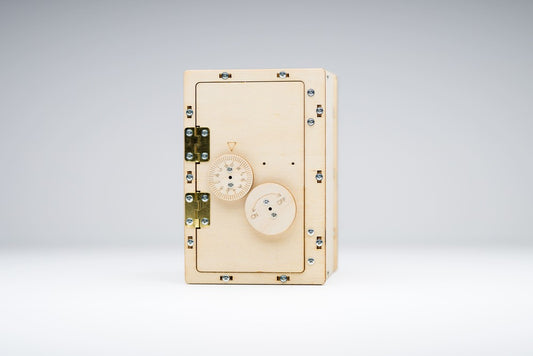In an era dominated by technological advancements and rapid scientific progress, nurturing a love of STEM (Science, Technology, Engineering, and Math) in young learners is crucial. To inspire creativity and a passion for innovation, monthly STEM challenges have emerged as a fun and educational way to expose kids to these critical fields. These subscription-based kits provide children with interactive projects that stimulate their imagination while instilling valuable skills that will help them thrive in a world that increasingly relies on technological literacy. Let's explore the impact of monthly STEM challenges on young innovators.
1. Hands-On Learning and Practical Skills
Monthly STEM challenges bring learning to life through hands-on experimentation. Each box provides children with projects that involve assembling, designing, and troubleshooting—skills that can't be learned through passive consumption of information. These activities translate abstract concepts into practical applications, offering kids a tangible way to understand scientific principles while developing problem-solving skills that will serve them well in school and beyond.
2. Igniting Curiosity and Passion
Regular exposure to new challenges keeps children engaged and curious about different areas of STEM. They can explore topics ranging from physics and chemistry to robotics and coding, discovering what excites them the most. Monthly STEM challenges help children identify their passions early on and nurture a love for experimentation and exploration that can guide their educational and career paths.
3. Fostering Critical Thinking and Innovation
Each monthly challenge pushes children to think critically about how to approach problems, test their hypotheses, and iterate on their designs. This fosters a mindset of innovation, where kids learn that failure is simply a step toward improvement. They gain valuable experience in adapting to new situations and experimenting with different solutions, which are essential skills for the innovators of tomorrow.
4. Promoting Collaborative Skills
STEM challenges often encourage collaboration, either with family members or friends. Kids learn to communicate their ideas clearly, listen to others' perspectives, and build upon each other's strengths. This collaborative spirit is crucial in a world where innovation is increasingly achieved through teamwork. Such experiences help children develop the interpersonal skills required to excel in group settings and future careers.
5. Building Confidence and Perseverance
Completing monthly STEM challenges builds a sense of accomplishment in children, boosting their confidence as they tackle increasingly complex projects. When they overcome obstacles and solve problems independently, they realize their own potential, leading to higher self-esteem. Even when challenges are difficult, learning to persevere and keep trying helps children develop resilience and a growth mindset that will serve them well throughout their lives.
6. Making STEM Relevant and Fun
Monthly STEM challenges often relate directly to real-world scenarios, demonstrating to children the practical impact of STEM concepts. From building simple machines to testing chemical reactions, kids see the relevance of these skills in everyday life. This approach makes STEM both exciting and meaningful, showing them how scientific thinking can make the world a better place.
Conclusion
Monthly STEM challenges are an impactful way to nurture the next generation of innovators. They inspire a love of learning through practical projects that ignite curiosity, foster critical thinking, and promote collaboration. By regularly engaging young learners with hands-on challenges, we can help them build the confidence, creativity, and perseverance needed to thrive in STEM fields and tackle the world's pressing challenges. Investing in these educational experiences today will yield a future generation of thinkers, creators, and problem-solvers ready to shape our tomorrow.




